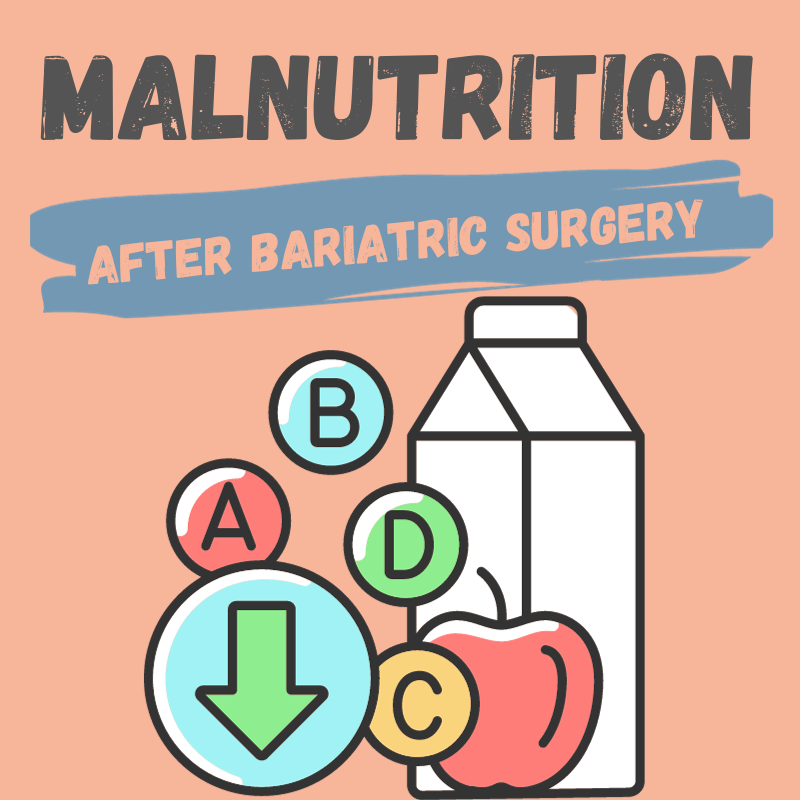Your cart is empty
Dumping Syndrome: The Unpleasant Surprise After Bariatric Surgery
If you're considering bariatric surgery or have already undergone it, you may have heard of "dumping syndrome." It’s a common issue that many post-bariatric surgery patients experience, but it's not always an easy topic to talk about. Here we’ll dive into what dumping syndrome is and how we can manage it.

Understanding Dumping Syndrome
While dumping syndrome can be uncomfortable and even scary at first, it's important to remember that it's a normal side effect of bariatric surgery, and many patients experience it to some degree. It occurs when food moves too quickly through the digestive system, causing uncomfortable symptoms like nausea, vomiting, diarrhea, sweating, and dizziness. It can happen shortly after eating (early dumping syndrome) or a few hours later (late dumping syndrome).
- Early Dumping Syndrome is like a freight train that moves too fast, causing food to enter the small intestine too quickly, and releasing a large amount of hormones. This can lead to symptoms like nausea, vomiting, diarrhea, sweating, and dizziness within 30 minutes to an hour after eating.
- Late Dumping Syndrome is like a slow-burning fire that occurs 1 to 3 hours after eating. It happens when food that is high in sugar enters the small intestine too quickly, causing a rapid increase in blood sugar levels. The pancreas then releases insulin to bring the blood sugar levels back down. This can lead to symptoms like weakness, sweating, dizziness, and confusion.
How Common Is Dumping Syndrome After Bariatric Surgery?
Dumping syndrome is a common side effect of bariatric surgery, with up to 50% of patients experiencing it at some point after their surgery, according to the American Society for Metabolic and Bariatric Surgery. However, the risk of developing dumping syndrome is higher for patients who undergo gastric bypass surgery compared to gastric sleeve surgery:
Gastric bypass: Dumping syndrome is more common in patients who undergo gastric bypass surgery. Studies have shown that up to 85% of gastric bypass patients experience dumping syndrome in the first few months after surgery, although this number decreases over time.
Gastric sleeve: Dumping syndrome is less common in patients who undergo gastric sleeve surgery. Studies have shown that only about 5% to 10% of gastric sleeve patients experience dumping syndrome, and the symptoms are usually milder compared to gastric bypass patients.
What Should I Do During Dumping Syndrome?
Dumping syndrome is like a sucker punch to the gut, but there are things you can do to manage the symptoms and make yourself more comfortable. The first thing to do is to stop whatever you're doing and lie down. This will help your body relax and reduce the symptoms. Taking slow, deep breaths and focusing on your breathing can also help ease the discomfort.
Drinking fluids (other than milk or juice) can also help ease symptoms. Sipping on water or a sports drink can help replace fluids lost through sweating and diarrhea. However, avoid drinking too much too quickly, as this can make the symptoms worse.
Avoid solid foods until you're feeling better. This will give your digestive system a chance to rest and recover. You may find that you're hungry after a dumping episode, but it's important to resist the urge to eat until you're feeling better.
What Is the Best Way to Avoid Dumping Syndrome?
The good news is that dumping syndrome is usually preventable or at least manageable with some simple lifestyle changes. Here are some preventative tips:
Eat a Balanced Diet: Eating a balanced diet is like the holy grail of post-bariatric surgery life. You should aim to eat small, frequent meals throughout the day that are low in sugar and fat. Choose high-protein foods like lean meats, fish, eggs, and tofu, and pair them with plenty of non-starchy vegetables. Avoid sugary and high-fat foods that can trigger symptoms, like candy, soda, and fried foods.
Eat Slowly and Chew Thoroughly: Eating slowly and chewing your food thoroughly can help prevent dumping syndrome by giving your stomach time to digest food properly. Take small bites, put your fork down between bites, and chew your food thoroughly before swallowing. This will also help you feel fuller faster, which can prevent overeating and weight gain.
Don't Drink Fluids with Meals: Drinking fluids with meals can speed up the digestive process and increase your risk of developing dumping syndrome. Instead, wait at least 30 minutes after eating to drink fluids. When you do drink, choose water or other low-sugar, low-calorie fluids like herbal tea or sugar-free sports drinks.
Stay Hydrated: Staying hydrated is important for overall health and can help prevent dumping syndrome by keeping your digestive system functioning properly. Drink plenty of water throughout the day, and aim for at least 64 ounces (8 cups) per day.
Work with Your Doctor: Your doctor or medical team can provide personalized advice on how to avoid dumping syndrome based on your specific situation. They may recommend changes to your diet or medication to help manage your symptoms. Be sure to follow their advice and attend regular check-ins to ensure your continued success after surgery.
Living a Healthy, Happy Life After Bariatric Surgery
Dumping Syndrome can be a pain in the gut, but it's a normal side effect of bariatric surgery. By understanding the symptoms, knowing what to do during an episode, and managing it with a few lifestyle changes, you can minimize its impact on your life. And always remember, you are not alone - there are many gastric sleeve stories out there, and you are part of a community that understands what you are going through. Finally, it's worth noting that 5 years post-op, many patients report significant improvements in their quality of life after bariatric surgery, so don't give up hope.
Bariatric Guides & Information
More Info
- Choosing a selection results in a full page refresh.


















